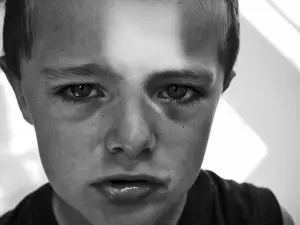“Tired mothers find that spanking takes less time than reasoning and penetrates sooner to the seat of the memory.” Will Durant
“Spanking and verbal criticism have become, to many parents, more important tools of child rearing than approval.” Phil Donahue
“Spanking is simply another form of terrorism. It teaches the victims that might makes right, and that problems can be solved through the use of violence by the strong against the weak.”
“Infliction of pain or discomfort, however minor, is not a desirable method of communicating with children.” American Medical Association
How and why did the state of Massachusetts hinder the advancement of our human evolution? I truly was shocked to hear of Massachusetts, Justice’s decision to promote the guidelines for the use of physical punishment by parents. As a teacher, I am aware that loving a child and displaying kindness works far better. How is there anything LEGAL in guidelines promoting physical punishment by anyone? I suppose it sounds good and appeases parents who choose this form of discipline.
They say it is permissible to discipline by spanking, so long as “Reasonable Force” is used, and the child is not harmed. Is this not ludicrous? How does one use force of any kind on a child and then decide how much the child has been harmed physically, mentally, emotionally, or spiritually? Who are we kidding? I am sorry if we are leading such busy lives that we anger quickly, have more burdens that frustrate us, and have little time to discipline because we have no energy, time, or effort remaining by the end of the day. The quick fix of a Spank, which also defined as a smack, slap, hit, strike, paddle, thrash, beating, and paddling, is the solution that fits in nicely with our busy lives and perhaps uncontrolled tempers.
The justices of the court issued this Framework while reversing the assault and battery conviction of a man who was seen spanking his almost three old daughter. Now the question comes to mind regarding the force of a grown man against a less than three old child. How angry was he? Is he very strong? Is the child little for her age? The Framework that was construed by the Justices also includes a parental privilege defense. How convenient that is. No more liability towards smacking our children, except our consciences, which have gone on vacation.
Does this mean if we strike our neighbor’s child for their ill behavior, we will be charged with battery? I know if we hit any adult, we will face the consequences, yet our children are fair game with the court’s blessing. If we can’t hit our neighbor, then why is it okay to hit our small helpless children? I have an issue with the degree of the smack, as well as the judgment of how harmful it might be, especially when the person making these decisions is the one doing the hitting.
One Justice stated that two very important interests needed to be balanced. We must protect children against abuse, and not interfere with the parents in the way they see fit to raise their kids. Now some people may falsely believe this has made it easier to solve some court cases. It appears to me to be at the expense of our kid’s welfare. I also can’t understand how it will be easier to protect the children from child abuse when parents have just received a legal right to assault them. Using tame words makes it more palatable for the general public.
I use the word assault because how can we limit the extent of the spanking if we are not present when it is given and only have the perpetrator’s version of the incident. A hard smack to the back of the head may not display any discoloring. If one was brought up on charges, the defense could be that the parent swung a bit harder than they realized, the child turned, and the strike was given in a place the parent did not mean to hit. The list can go on. We don’t want to look at the details. We want something that works fast, easy, and makes everyone comfortable. Kids don’t question or vote.
I am confused about the “Force being okay as long as it is reasonable,” “it is used for safeguarding the child,” “it is promoting the welfare of the child,”” or “it is a punishment of the minor’s misconduct.” So I think we are teaching the kids that it is okay for the ones they love to hit them, yet we don’t want our kids striking others. How are we making any sense? Do we see the paradox? Now we tell the children they can thrash their kids when they are adults. We have gone back to the old rules of do as I say but not as I do.
I think we have given offenders a free ticket at least for the first offense if they used too much force. They can offer the defense that they did not feel it was that strong a hit. How can we judge these personal and subjective opinions? Has anyone thought of the emotional scars of the children who are beaten? No one is supposed to cause lasting emotional or physical harm. How are we going to fix this one? Do we wait for broken bones? Down the road, do we blame the emotional problems the child is having on the spankings, or do we call upon other issues in our defense? Balance of any kind has been tossed under the bus. It certainly isn’t balanced towards the children.
There is supposed to be respected for parental decisions. I profess that there should be respect for children and all life in general. It seems to me that we have disregarded the welfare of the children in favor of solutions, be they right or wrong. The end never justifies the means. I don’t see how anybody can come to the defense and protection of children with such a law in effect.
As I continued the reading, I was confused upon hearing an officer of the Massachusetts Society for the prevention of Cruelty to Children, credit the justices for balancing views on both sides. Did anybody get the reviews of the children? Have we asked them how pleasant demeaning painful embarrassing, and at times terrifying, it is to be at the mercy of an angry intimidating adult? There is always emotional and physical pain in this situation, in my opinion. She also credited the Justices for their strong position on “Child Protection.” I am shocked at that statement and have no words to fit my shock and deep pain for the complicated lives the children are forced to experience.
Somehow, in my opinion, people were sleeping on the job. Have we spent any time with kids lately? They are the ones who love parents unconditionally. They are concerned immediately when we are in any kind of pain. They accept everything we dish out and come back smiling and forgiving. If we love our children unconditionally, perhaps we might reflect on the plight of children who are going to be abused, in my opinion, because of this Law. It makes hitting legal. Adults are arrested when they hit someone. We are taking a big step backward in becoming a more humane society. We are choosing brute force rather than talking, explaining, negotiating, providing understanding feedback tolerance, and compassion to a dilemma.
If we want our kids to forgive and love others, we must demonstrate this behavior. If we demonstrate force, control disrespect, and intimidation, we will promote a society that reinforces these attributes. We have no right to complain about the world we are creating. The choice is in our hands. Parents are not bad people, but if under duress, they must learn how to deal with their stress and anxiety problems rather than take it out on the kids. Model and teach the ideals you wish to observe in your children. Make no mistake; they will become what you teach. If you want compassionate, kind, tolerant, loving, empathetic children, begin by showing them what that looks like and be that kind of person.
A transformation sends out sparks of love and enlightenment. A wildfire burns relentlessly without remorse. We are burning away from our problems. I hope God doesn’t tire of us and our world. The simplicity of it is that love can perform miracles, while fury succeeds in burning anything in its path.
“If we are ever to turn toward a kindlier society and a safer world, a revulsion against the physical punishment of children would be a good place to start.”
“Researchers have also found that children who are spanked show higher rates of aggression and delinquency in childhood than those who were not spanked. As adults, they are more prone to depression, feelings of alienation, use of violence toward a spouse, and lower economic and professional achievement. None of this is what we want for our children.” Alvin Poussaint, M.D., Professor of Psychiatry, Harvard Medical School:


